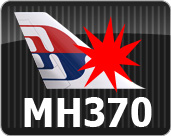 PUTRAJAYA, Jan 10 — Malaysia and US firm Ocean Infinity have struck a deal to resume an underwater search for the Malaysia Airlines flight MH370 that went missing nearly four years ago, Transport Minister Datuk Seri Liow Tiong Lai said today.
PUTRAJAYA, Jan 10 — Malaysia and US firm Ocean Infinity have struck a deal to resume an underwater search for the Malaysia Airlines flight MH370 that went missing nearly four years ago, Transport Minister Datuk Seri Liow Tiong Lai said today.
He said that while the deal is based on a “no cure, no fee” basis, a payment of up to US$70million (RM285 million) will be made if the US firm is able to locate the debris field of the missing jumbo jet or the aircraft’s black box within 90 days from the launch of the search starting mid-January.
“The company should also be able to present a considerable and credible evidence to confirm the exact location of the two main items,” he said at the MH370 search operations signing ceremony between Malaysian government and US firm Ocean Infinity Limited here,.
He said the primary mission by the US exploration firm is to identify the location of the wreckage and or both of the flight recorders, namely the Cockpit Voice Recorder (CVR) and Flight Data Recorder (FDR).
Liow said the payment, which will be borne by the government, is subject to the coverage area of the wreckage, which was agreed to four divisions.
The conditions of the reward are US$20 million (RM82 million) for the 5,000 square kilometre primary search area, US$30 million (RM122 million) for the subsequent 10,000 square kilometre secondary search area, US$50 million (RM205 million) for the subsequent 10,000 square kilometre tertiary search area, and US$70 million (RM285 million) for any additional supplementary search areas beyond 25,000 square kilometres.
He said the search will include 65 crew on board, including two Royal Malaysian Navy personnel as the Malaysian government’s representatives.
He said the MH370 response team will be headed by Civil Aviation director-general Datuk Seri Azharuddin Abdul Rahman, along with officials from the ministry, Foreign Affairs Ministry, and Communications and Multimedia Ministry.
“As we speak, the vessel, Seabed Constructor, is currently on her way to the search area, taking advantage of the favourable weather conditions in the South Indian Ocean.
“In the past, we only had one underwater search vehicle for the search operations but with the technology we have at hand, we hope we can identify the wreckage as soon as possible,” he told the media at the press conference.
When asked about the decision to relaunch the search operations, Liow said the move was made based on expert views on the high probability of finding the wreckage in the new search area.
“We came to the conclusion that it is important for us to continue this mission to finally find some answers and closure,” he said.
Meanwhile, Ocean Infinity chief executive officer Oliver Plunkett said the firm is deploying eight autonomous underwater vehicles for the search, which can roughly cover 1,200 square kilometres per day.
“We can finish the first 25,000 square kilometres with three to four weeks. If we don’t find it within the said area, we can carry on looking for it within the agreed timeframe.
“Further analysis from scientists revealed the search at the 120,000-square-kilometre area allows us to say that the wreckage is not in the previous zone,” he said.
Formed in 2015, Plunkett said the company has 25 team members on board, with four experienced in the search of the Air France 447 crash in the Atlantic Ocean in June 2009.
Malaysia had agreed to allow the American company to resume the search for missing flight MH370, a year after the hunt was suspended on January 2017.
Ocean Infinity had dispatched a research vessel earlier this month towards the expected search area.
Missing flight MH370 disappeared with 239 people on board on March 8, 2014 while flying from Kuala Lumpur to Beijing after diverting from its flight path.
No sign of the plane was found in the search zone selected by satellite analysis of the flight’s projected trajectory.




















